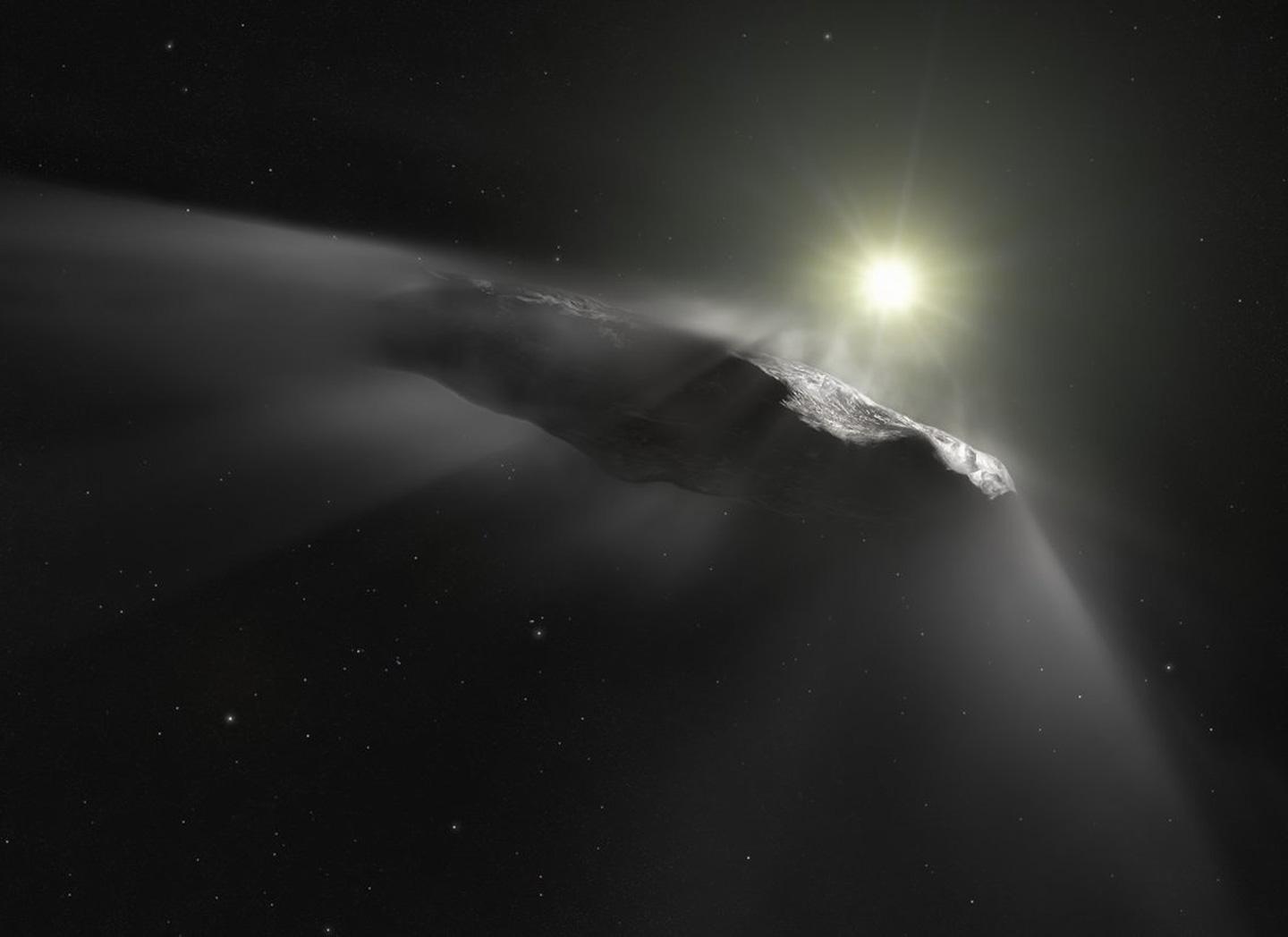NASA Learns More About Interstellar Visitor 'Oumuamua
Posted: Wed Nov 14, 2018 9:49 pm
NASA Learns More About Interstellar Visitor 'Oumuamua
NASA | JPL-Caltech | Spitzer | 2018 Nov 14
Spitzer Observations of Interstellar Object 1I/'Oumuamua ~ David E. Trilling et al
viewtopic.php?p=286710#p286710
NASA | JPL-Caltech | Spitzer | 2018 Nov 14
In November 2017, scientists pointed NASA's Spitzer Space Telescope toward the object known as 'Oumuamua — the first known interstellar object to visit our solar system. The infrared Spitzer was one of many telescopes pointed at 'Oumuamua in the weeks after its discovery that October.
'Oumuamua was too faint for Spitzer to detect when it looked more than two months after the object's closest aproach to Earth in early September. However, the "non-detection" puts a new limit on how large the strange object can be. The results are reported in a new study published today in the Astronomical Journal and coauthored by scientists at NASA's Jet Propulsion Laboratory in Pasadena, California.
The new size limit is consistent with the findings of a research paper published earlier this year, which suggested that outgassing was responsible for the slight changes in 'Oumuamua's speed and direction as it was tracked last year: The authors of that paper conclude the expelled gas acted like a small thruster gently pushing the object. That determination was dependent on 'Oumuamua being relatively smaller than typical solar system comets. (The conclusion that 'Oumuamua experienced outgassing suggested that it was composed of frozen gases, similar to a comet.) ...
Spitzer Observations of Interstellar Object 1I/'Oumuamua ~ David E. Trilling et al
- Astronomical Journal 156(6):261 (Dec 2018) DOI: 10.3847/1538-3881/aae88f
viewtopic.php?p=286710#p286710
